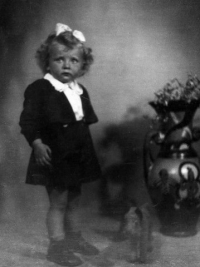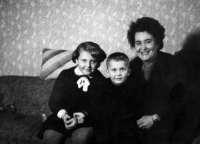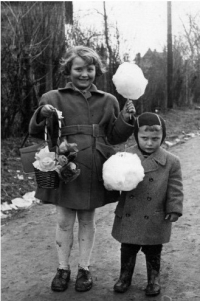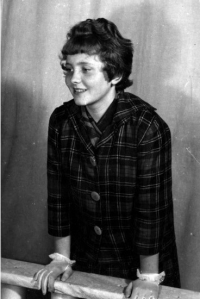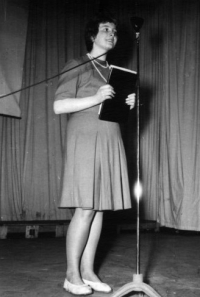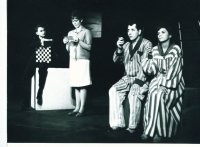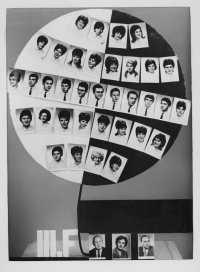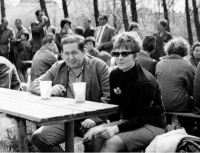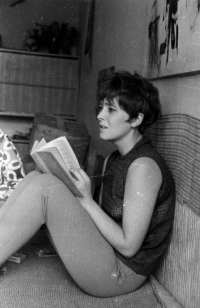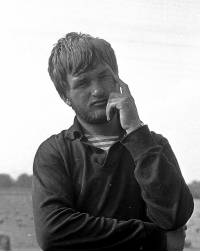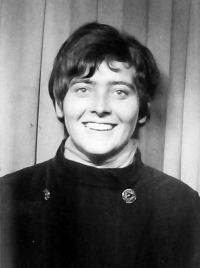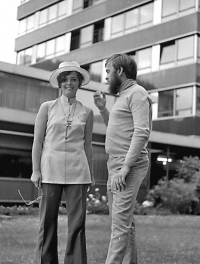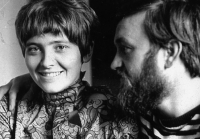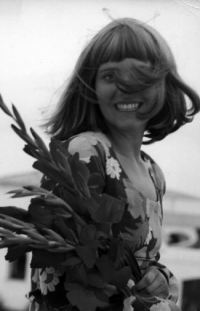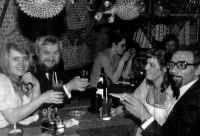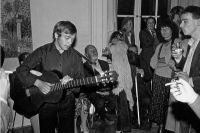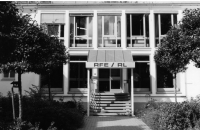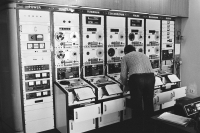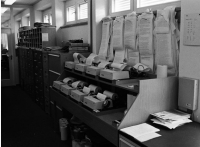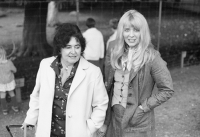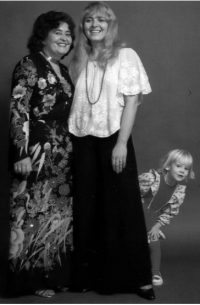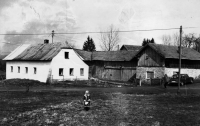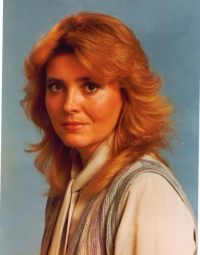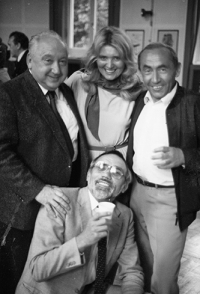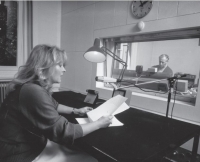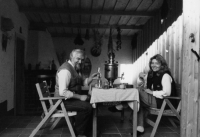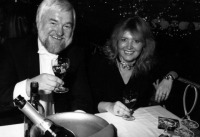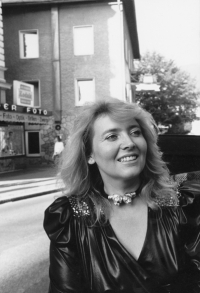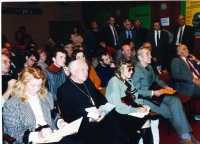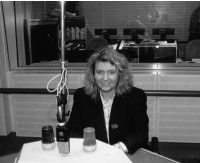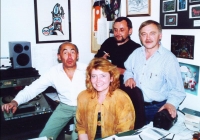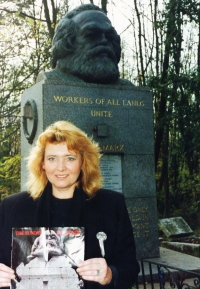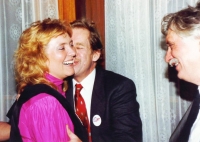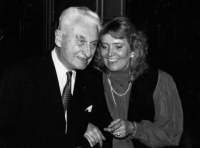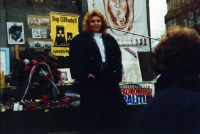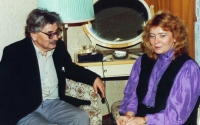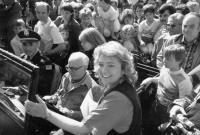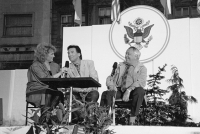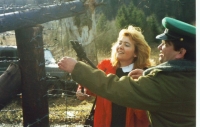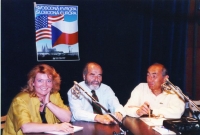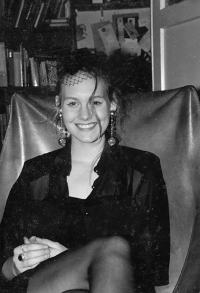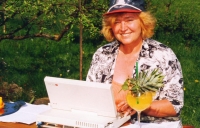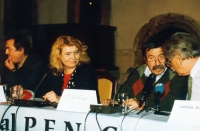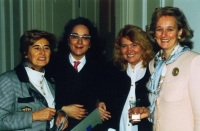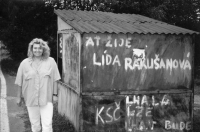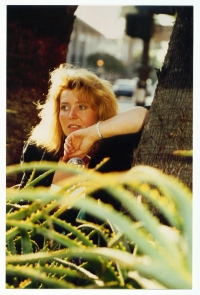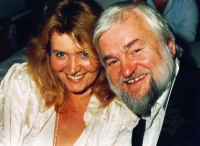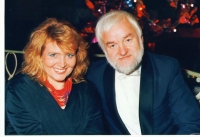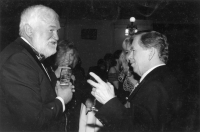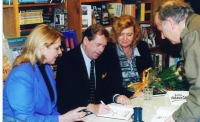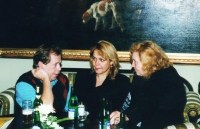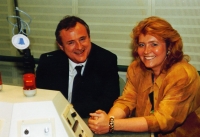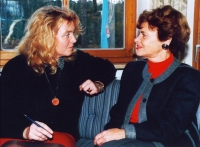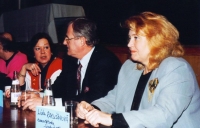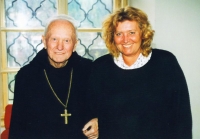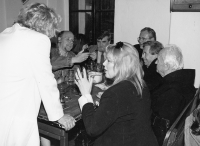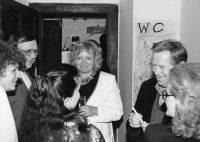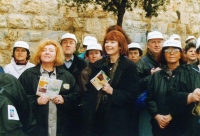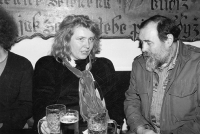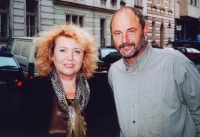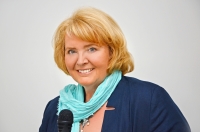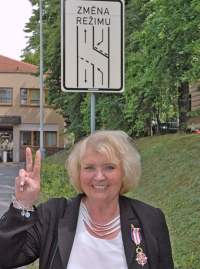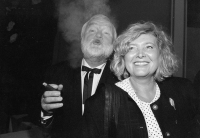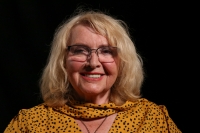Even people in the remotest village could hear what was really happening at the Wenceslas Square

Download image
Lída Rakušanová was born on 26 May 1947 in České Budějovice. From 1965 to 1968, she studied Czech, History, South Slavic Languages and Aesthetics at the Faculty of Arts in Prague. After the invasion of August 1968, she and her boyfriend, Josef Rakušan, a photographer, left the country. They settled down in Germany, got married and since 1970 they had been living in Munich. Thanks to their friends, Sláva Volný in particular, they got involved in the cultural life of the emigres. In December 1974, Rakušanová gave birth to her daughter, Lucie. In 1975, Lída Rakušanová started working for Radio Free Europe as an outside worker, featuring in ‘Rozhledy’ show. Since 1978, she had been a permanent member of the staff. She created a number of popular radio shows, like Literature Uncensored (Literatura bez cenzury). She came back to Prague for the first time during the Velvet Revolution, and since the 1990s, she had been living in the city for part of a year. She collaborated with the local Free Europe editorial office and wrote for German and Swiss press. In 1993, she won a Czech award as the Woman of Europe Award for her civic engagement. In 1997, she published her book, Václav and Dagmar Havel: The Two Life Stories in One Volume, and two years later its German translation was published. She had her own show at Czech TV, ‘The moment with Lída Rakušanová’ (Na pozvání Lídy Rakušanové); from 1997 to 2003, she made a documentary series about Czech society with Jiří Krejčík Jr., ‘In the Tentacles of Corruption’ being the most successful of them all. From 2002 to 2015, she had been working for the Vltava-Labe Press as a journalist and an education coordinator. In 2004, she founded the Institute for Regional Journalism with Ivo Možný. From 2004 to 2005, she was the head of an European journalist association. She was awarded many prizes and awards, like Der Kunstpreis zur deutsch-tschechischen Verständigung (Umělecká cena česko-německého porozumění, 1997), Cena Jana Palacha (Jan Palach Award, 2000), Cena ministra životního prostředí (The Minister of the Environment Award, 2001), Opus vitae Award (2019). In 2020, her book of memoirs, ‘Free in Europe’, was published. In 2021, she had been living mostly at her cottage in the Bavarian Forest, but was visiting Prague on a regular basis. She has been working as a commentator for the Czech Radio Plus and was engaged in public affairs, speaking for the media, giving lectures and participating in discussions.
